 Petzlover
Petzlover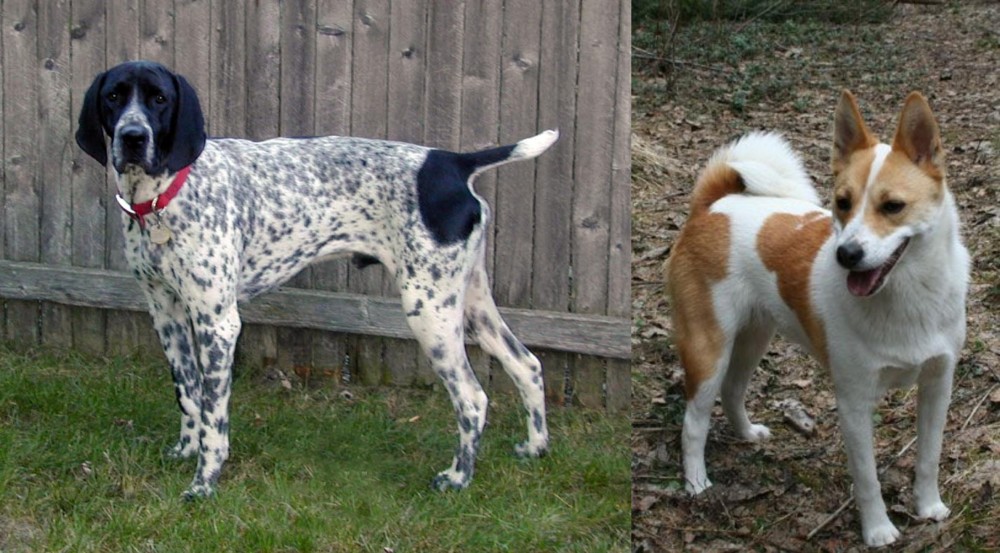 Braque d'Auvergne is originated from France but Norrbottenspets is originated from Sweden. Braque d'Auvergne may grow 19 cm / 8 inches higher than Norrbottenspets. Braque d'Auvergne may weigh 47 kg / 104 pounds more than Norrbottenspets. Both Braque d'Auvergne and Norrbottenspets has same life span. Braque d'Auvergne may have more litter size than Norrbottenspets. Both Braque d'Auvergne and Norrbottenspets requires Low Maintenance.
Braque d'Auvergne is originated from France but Norrbottenspets is originated from Sweden. Braque d'Auvergne may grow 19 cm / 8 inches higher than Norrbottenspets. Braque d'Auvergne may weigh 47 kg / 104 pounds more than Norrbottenspets. Both Braque d'Auvergne and Norrbottenspets has same life span. Braque d'Auvergne may have more litter size than Norrbottenspets. Both Braque d'Auvergne and Norrbottenspets requires Low Maintenance.
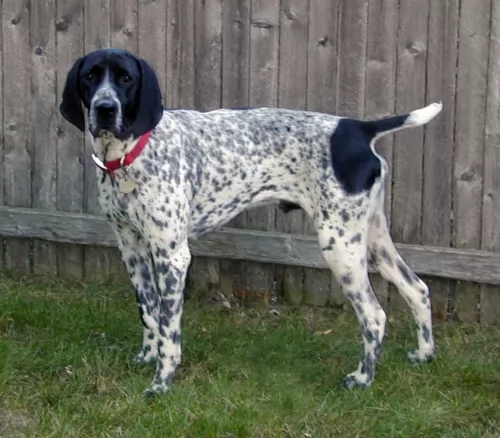 Sometime over 5 centuries ago, in the Cantal Region of France, was born a hunting breed, that might be the real ancestor of today’s pointing hunter dogs. Perhaps the oldest of all pointing gun dog is the Braque d’Auvergne. This breed comes from Central France in the region of Auvergne. This breed was developed prior to written dog breeding records in order to hunt in this region and find, point, flush out and retrieve fowl. This breed is clearly one of if not the oldest breeds in the French Braque. There is no agreement among historians on what breed is the oldest of the European pointing dogs and where they were developed – was it Spain or was it France? It is thought that the Braque Francais Gascogne is the original one of these in the early 1600’s while the Braque d’Auvergne came soon after. Due to the different hunting needs in the different parts of France, the Braque Francais Gascogne was crossed with a lot of other local scent hounds. The Braque d’Auvergne is one of the very oldest of all of these. There are records of the breeds existence in the 1700’s. It is probable that the Braque d’Auvergne was developed by crossing local dogs with Gascogne as well as with the Petit Bleu de Gascogne and the Grand Bleu de Gascogne.
Sometime over 5 centuries ago, in the Cantal Region of France, was born a hunting breed, that might be the real ancestor of today’s pointing hunter dogs. Perhaps the oldest of all pointing gun dog is the Braque d’Auvergne. This breed comes from Central France in the region of Auvergne. This breed was developed prior to written dog breeding records in order to hunt in this region and find, point, flush out and retrieve fowl. This breed is clearly one of if not the oldest breeds in the French Braque. There is no agreement among historians on what breed is the oldest of the European pointing dogs and where they were developed – was it Spain or was it France? It is thought that the Braque Francais Gascogne is the original one of these in the early 1600’s while the Braque d’Auvergne came soon after. Due to the different hunting needs in the different parts of France, the Braque Francais Gascogne was crossed with a lot of other local scent hounds. The Braque d’Auvergne is one of the very oldest of all of these. There are records of the breeds existence in the 1700’s. It is probable that the Braque d’Auvergne was developed by crossing local dogs with Gascogne as well as with the Petit Bleu de Gascogne and the Grand Bleu de Gascogne.
In all of Western Europe, the region of Auvergne is not very populated and has unique geography in that is hilly and has many extinct and eroded volcanoes. A lot of the region is still unpopulated. In this environment, wildlife has flourished, and hunting is successful in providing food for the regions people. This circumstance with an abundance of birds, led to the breeding of the Braque Auvergne to specialize in hunting in this area. The breed is not very popular outside of Auvergne and probably never was. That fact allowed them to be devastated by the Second World War. The Reunion des Amateurs de Braque d’Auvergne (RABA) was started to promote the pure breeding and the protection of the d’Auvergnes. But when Auvergnes was occupied during the war, the slowed breeding of the Braque d ‘ Auvergne almost eliminated the breed. There might have only been about 25 dogs left following the end of the war. These remaining dogs were used to revive the breed, but it is still uncommon, but not rare. Individuals have been imported by other countries including North America. The United Kennel Club (UKC) accepted the breed in 2006 but is not accepted by the AKC (American Kennel Club). The breed is still a working breed and outside of France, very rare.
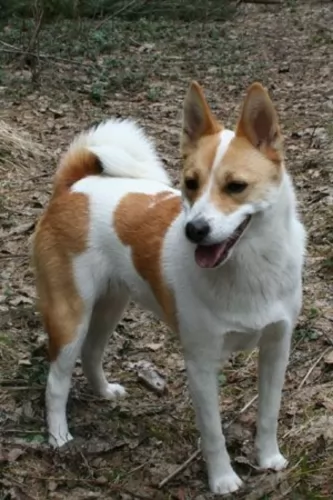 The Norrbottenspets is an ancient dog breed whose purpose has been to hunt, although these days he is a companion dog.
The Norrbottenspets is an ancient dog breed whose purpose has been to hunt, although these days he is a companion dog.
Hailing from Noorbotten, Sweden, it was after the second world war that the breed almost became extinct. This was because hunting dogs were no longer needed.
Luckily a breeding program was started, and in 1967 the Swedish Kennel Club registered the dog and a new standard was written. His friendly, amicable nature makes him a sought after companion today.
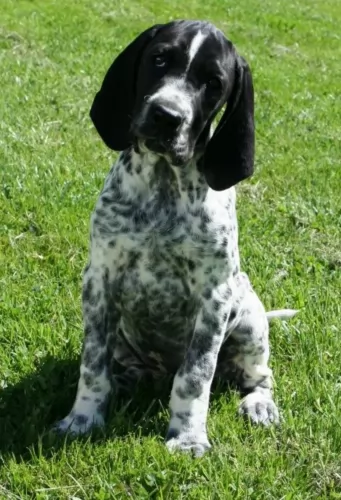 The Braque d’Auvergne is a well built, strong hunting dog with long ears, a large head and a docked tail. His coat is white with black markings and black ears and head. The breed looks a lot like all the other pointing dogs from France. They are medium in stature and has the appearance of a working gundog. He is athletic, muscular and fit. Docking the tail is outlawed in many countries and all of the United Kingdom. In that case the tail is high on the rump and always straight. Their face and head are big for the size of the body and shaped like an oval. With a long muzzle, deep set eyes and a gentle expression, they are kindly and handsome dogs. Their skin is loose but not droopy or wrinkled like hound dogs.
The Braque d’Auvergne is a well built, strong hunting dog with long ears, a large head and a docked tail. His coat is white with black markings and black ears and head. The breed looks a lot like all the other pointing dogs from France. They are medium in stature and has the appearance of a working gundog. He is athletic, muscular and fit. Docking the tail is outlawed in many countries and all of the United Kingdom. In that case the tail is high on the rump and always straight. Their face and head are big for the size of the body and shaped like an oval. With a long muzzle, deep set eyes and a gentle expression, they are kindly and handsome dogs. Their skin is loose but not droopy or wrinkled like hound dogs.
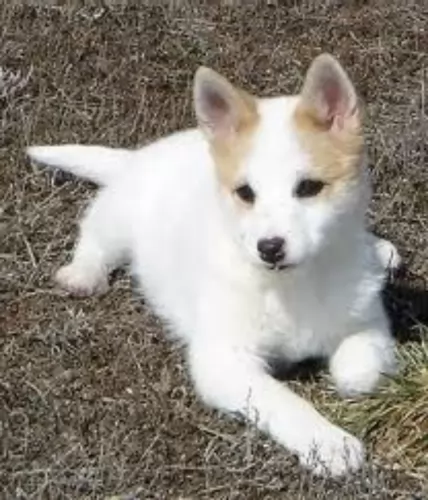 The Norrbottenspets is a small to medium sized spitz- type dog but he is muscular and compact. He stands at between 42 – 46cm in height and weighs in at between 8 and 15kg.
The Norrbottenspets is a small to medium sized spitz- type dog but he is muscular and compact. He stands at between 42 – 46cm in height and weighs in at between 8 and 15kg.
With good care he can live to be up to 15 years of age. The coat of the dog is straight and dense and you find quite a few colors such as white, yellow and reddish and sometimes there is a bit of ticking. He has a short to medium length waterproof coat which is dense.The outer coat is coarse with straight hair and the undercoat is soft and thick and the dog is a moderate shedder.
The head is wedge-shaped with erect ears, black nose and brown almond-shaped eyes. The muzzle is pointed and slim and the dog's tail is long and curls up over his back
Confident, alert and active, the Norbottenspets is an active, happy-go-lucky kind of dog, always looking for a game. It is why he gets on well with children in the home – he can sense that there is perhaps a better chance of a game with them.
He isn’t a prey-driven dog and gets on well with other pets in the home. He makes an excellent family pet and his very presence brings joy into a room as he is always cheerful.
He is stubborn and independent and will therefore require training and socialization to become obedient to your basic commands such as sit, lie-down and come.
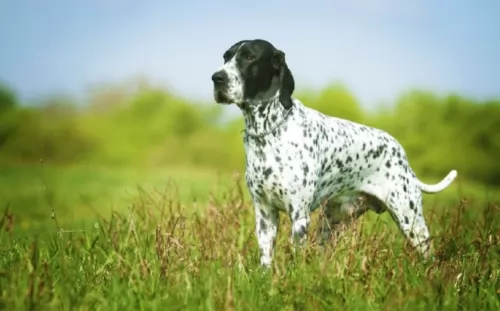 This is a gentle, adaptable and obedient breed. With their intelligence and affectionate nature, they make great family dogs and are eager to please their people. Living with other dogs is fine but not with small, prey size animals. The Braque d’Auvergne should never be left alone pets like gerbils and hamsters. They must be socialized to cats as pets and not prey before living with them successfully. They need to work closely with one human partner. They are first and foremost a hunting dog and need some sort of hunting simulation. They are devoted to their families and want to be constantly in their presence. This can lead to separation anxiety if they are left alone too much. They are great with children and need a family.
This is a gentle, adaptable and obedient breed. With their intelligence and affectionate nature, they make great family dogs and are eager to please their people. Living with other dogs is fine but not with small, prey size animals. The Braque d’Auvergne should never be left alone pets like gerbils and hamsters. They must be socialized to cats as pets and not prey before living with them successfully. They need to work closely with one human partner. They are first and foremost a hunting dog and need some sort of hunting simulation. They are devoted to their families and want to be constantly in their presence. This can lead to separation anxiety if they are left alone too much. They are great with children and need a family.
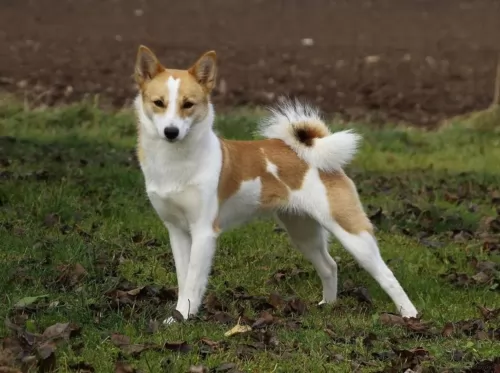 The Norrbottenspets is such an amicable, easy going pet and he is going to make you a loyal and loving canine companion. He bonds closely with his human family and will be bored and frustrated if left alone day after day in the back yard.
The Norrbottenspets is such an amicable, easy going pet and he is going to make you a loyal and loving canine companion. He bonds closely with his human family and will be bored and frustrated if left alone day after day in the back yard.
He is social and friendly and wants to be involved with the activities of his family. Feed him well, give him plenty of exercise and give him the love and care he deserves and he will make you an awesome canine companion.
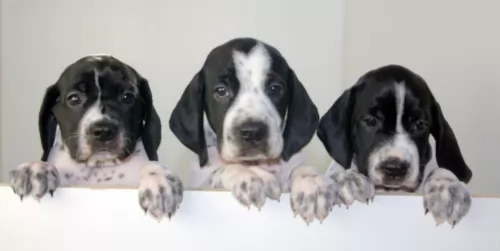 The Braque d’Auvergne is a healthy breed but can face some of the same health concerns as other pointers and hunting dogs. The long, droopy ears can get infected easily if wet and need to be cleaned regularly so that food or dirt are not trapped their either. Because of the small gene pool however they may be at risk for several issues. The breeders in France express concerns about possible hip dysplasia and testing is highly recommended. Because they are at risk for other conditions that might not show up until later in life, it is also recommended that they be tested by the Canine Eye Registration Foundation (CERF) as well as the Orthopedic Foundation for Animals (OFA).
The Braque d’Auvergne is a healthy breed but can face some of the same health concerns as other pointers and hunting dogs. The long, droopy ears can get infected easily if wet and need to be cleaned regularly so that food or dirt are not trapped their either. Because of the small gene pool however they may be at risk for several issues. The breeders in France express concerns about possible hip dysplasia and testing is highly recommended. Because they are at risk for other conditions that might not show up until later in life, it is also recommended that they be tested by the Canine Eye Registration Foundation (CERF) as well as the Orthopedic Foundation for Animals (OFA).
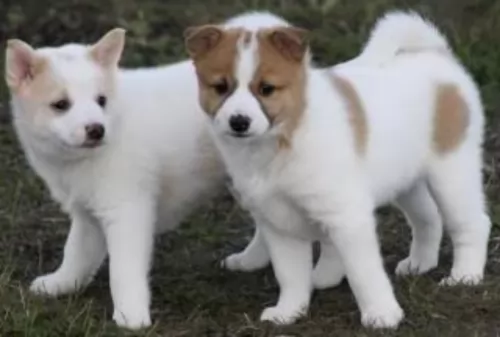 The Norrbottenspets life expectancy is between 12 and 15 years. These dogs are fairly healthy but there are always health concerns with any dog breed.
The Norrbottenspets life expectancy is between 12 and 15 years. These dogs are fairly healthy but there are always health concerns with any dog breed.
There are small numbers of the breed which are prone to a genetic condition affecting the brain and the result is poor coordination. It is sad to see because there is no known treatment and some dogs reach the stage where they can’t eat and they can’t control their toilet habits.
Dogs with hip dysplasia have an abnormal formation of the hip socket which can lead to arthritis, pain and the inability to get around. It is a genetic trait and you will need to get your pet to the vet for treatment and pain management.
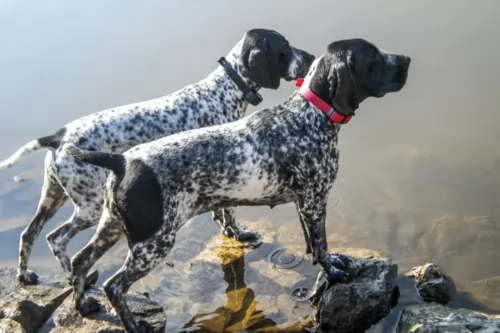 The Braque d’Auvergne needs a high-quality diet fit for a working dog but not too much to make him obese. They are an active breed to choose a formula that is designed for working dogs.
The Braque d’Auvergne needs a high-quality diet fit for a working dog but not too much to make him obese. They are an active breed to choose a formula that is designed for working dogs.
Although no studies have been conducted on the Braque d’Auvergne’s health issues there are many conditions that similar breeds are susceptible to and the d’Auvergne might be as well. This includes any of the following:
This is an active, working dog who needs a lot of stimulation and exercise. The only real appropriate exercise for these dogs is hunting or outings in the woods. He not only needs the exercise, but he also needs to stimulate his sense of smell and his gundog intelligence. He might excel in lure chase or even a form or barn hunt. They certainly could excel at obedience trials and perhaps rally. If you are a weekend hunter then this is the ideal dog for you. They are so easy to train that they surpass other pointers for success with casual hunters. They hunt at a slower pace than many other gundogs. Their intelligence and athleticism lend itself well to agility and flyball also. They need a large (+acres)fenced in area to run and play.
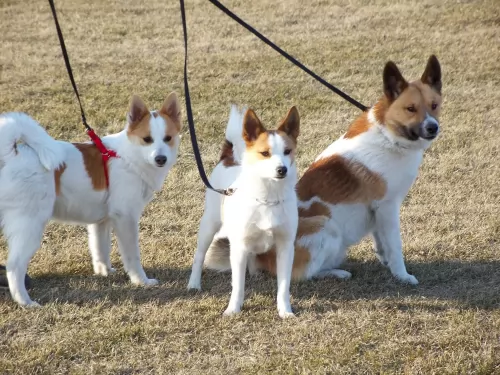 Your Norrbottenspet will be requiring a high-quality dog food if you want him to stand the best chances of being healthy. Home made food is always a good choice, but there are also some good commercially manufactured dog foods which are convenient.
Your Norrbottenspet will be requiring a high-quality dog food if you want him to stand the best chances of being healthy. Home made food is always a good choice, but there are also some good commercially manufactured dog foods which are convenient.
You want the food to have the necessary vitamins and minerals to ensure good health. Every dog will love a little bit of raw meat added to his kibble from time to time. Dogs love their meals to be consistent – no exotic, spiced foods to upset the stomach.
Boiled chicken, brown rice or pasta and cooked vegetables such as sweet potatoes, carrots and spinach can be chopped up and added to his kibble occasionally and this makes a splendid tasty treat for your pet.
You want to avoid your dog becoming overweight as this brings on a host of problems. Make sure he always has access to cool, fresh water.
The Norrbottenspets short to medium length coat will need brushing twice a week. They are clean looking dogs and you’ll find that they don’t have an unpleasant dog-smell around them.
Always check his eyes and ears for infections. Also check his teeth. A bad tooth may not be evident but it can negatively impact the immune system and cause illness with your dog.
The nails should also be cut to avoid them hooking on things.